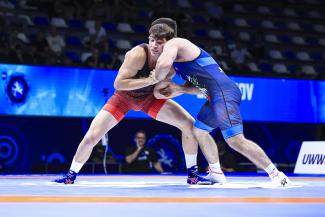Iraq conducts anti-doping education program
Tuesday, August 16, 2022 - 11:11 By United World Wrestling Press

CORSIER-SUR-VEVEY, Switzerland (August 16) -- At the request of the United World Wrestling, the Iraqi Wrestling Federation held a four-day anti-doping education program from August 11 to 14, 2022.
The seminar was conducted in collaboration with the Iraqi Anti-Doping Agency.
Dozens of wrestlers, across various age groups, along with coaches and athletes’ support staff attended the sessions, where they were educated about their obligations and rights as per the World Anti-Doping Agency (WADA) Code.
Several subjects were discussed during the sessions. The wrestlers, their coaches and support staff were made aware of the WADA’s list of prohibited substances, effective as of January 1, 2022. The prohibited list may include any substance or methods that satisfy any two of the following three criteria: if it enhances an athlete’s sporting performance; if it is an actual or potential health risk to the athlete; or if it violates the spirit of sport, as defined by the WADA Code.
The wrestlers were also educated about the consequences of doping, the testing protocols, the risks associated with nutritional supplements and therapeutic use exemptions.
Mr Shaalan Al Tamimi, the president of the Iraqi Wrestling Federation, said: “I am very satisfied with this project and we will continue this close collaboration on education with the anti-doping organization in Iraq to combat harmful conduct for our sports community.”
The four-day anti-doping program was in continuation of UWW’s quest for clean sport and an effective anti-doping education is a crucial part of it. In partnership with the WADA and the International Testing Agency, the UWW is determined to fight against doping in Wrestling (Olympic and Associated Styles) and works closely with National Wrestling Federations, National Anti-doping Agencies and National Olympic Committees.
Education is the key to preventing doping, which should be the primary objective. The UWW's anti-doping education initiative offers a comprehensive program for all stakeholders, particularly young wrestlers. National Federations, too, have a crucial role to play in educating their wrestlers. UWW encourages and supports any program they wish to set up in partnership with their National Anti-doping Agency.


Share your thoughts.
Comments